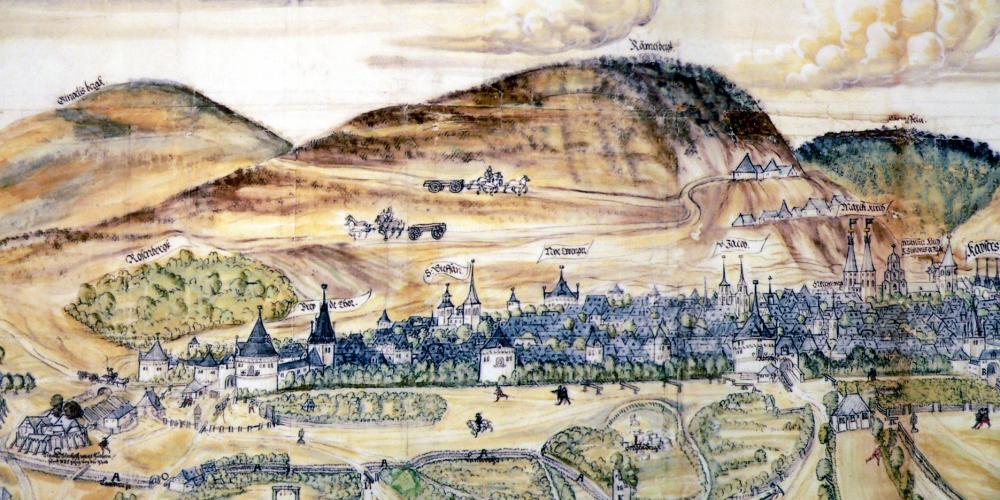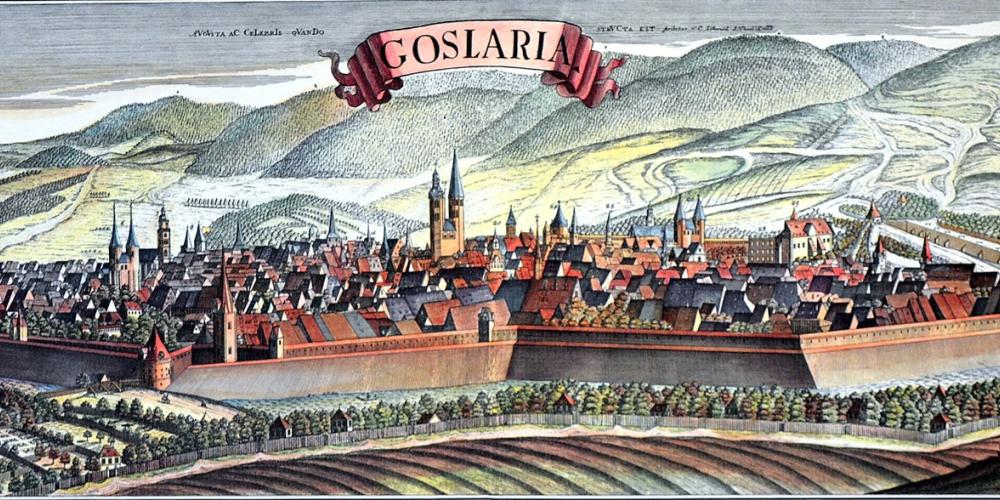The Founding of Goslar

A long time ago, a wild deciduous forest covered the area where the town of Goslar lies today. People feared wandering through the forest, as bears, wolves and other animals lived there and did not shy away from attacking people. However, the lonely beauty and the rich hunting grounds of the Herznische Wald attracted the nobles and rulers, and so you can still find the tiny remains of the castle of Henry the Fowler, the Palatinate Werla, which he had built to live here during the warmer seasons.
One year when autumn approached as the leaves gradually began to change colour, a cheerful flock of knights and squires went out on horseback into the dewy morning for a hunt. Soon they became separated, and Henry was alone with his squire, who followed him faithfully. After being on the trail of a deer for the whole day, just as the sun was setting, the full emperor reached and struck him down the stag with a massive javelin.
Hungry from the wild hunt and tired from the effort, Henry was now looking for a place to camp; but far and wide there was only wild forest. Soon they came to a small stream that rippled through the valley. Following the stream, Henry was overjoyed to find a meadow in the woods, surrounded by mountains and ancient trees, created especially as a hunting camp. The hunting call through the valley sounded bright, and soon an answer came from all sides. Not long after, all the lords arrived, loaded with heavy booty, and with cheerful chatter a rich meal was quickly prepared, which could all be tasted from the heart. When the cup began to circle, Henry suddenly rose from his camp, looked over the round and spoke with a voice ringing from afar:
"Look, you gentlemen, what a lovely place I had the privilege of finding today! In the middle of the wild forest, it lies lonely and quiet. This spot of earth, which God showed me today, shall become a jewel of my kingdom! Here in the deep forest, after all the hardship and work, I will contemplate in silence with myself and with God."
But a handsome knight doubtfully asked his royal master:
"Is that your word, Emperor Henry?"
"An emperor's word, as I live!" sounded the words back from the emperor's lips. And soon afterwards the old trees wondered and the brook looked strangely into the circle with its clear, silver-bright eyes. When a shy little deer came to this place, it was astonished and hurried away to announce in the forest to its friends that the emperor's word was an oath that would certainly be kept.
And soon a stately Palatinate was created under busy, creative hands, surrounded by majestic, proud mountains and whispering trees that were the pride and joy of the German emperors. It became a common resting place for them to gather strength and courage. Named after the busy, tireless little river on which it grew up, the square was called the "Lager an der Gose", and at the place where it stood, the Kaiserworth still stands today as the symbol of the Kaiserwort.


